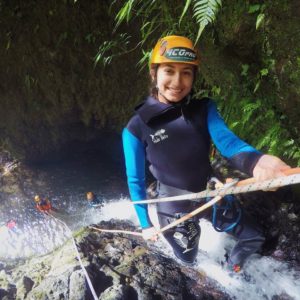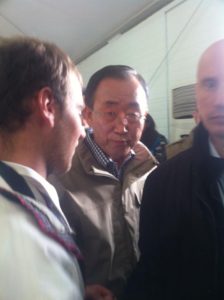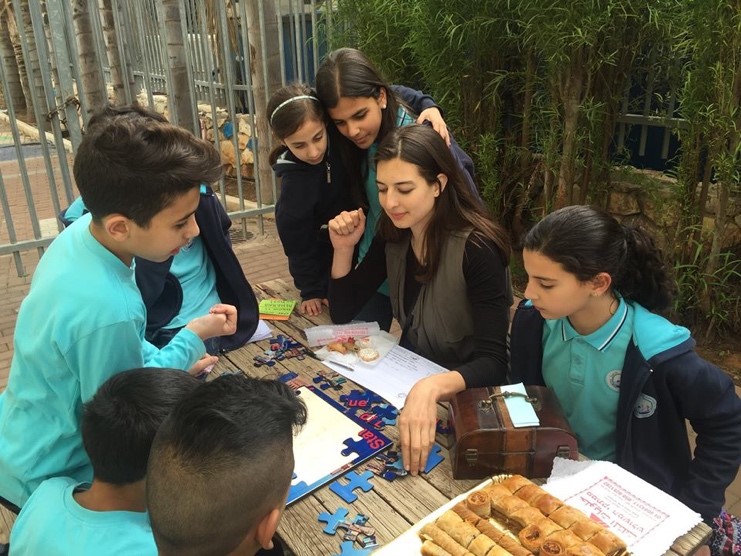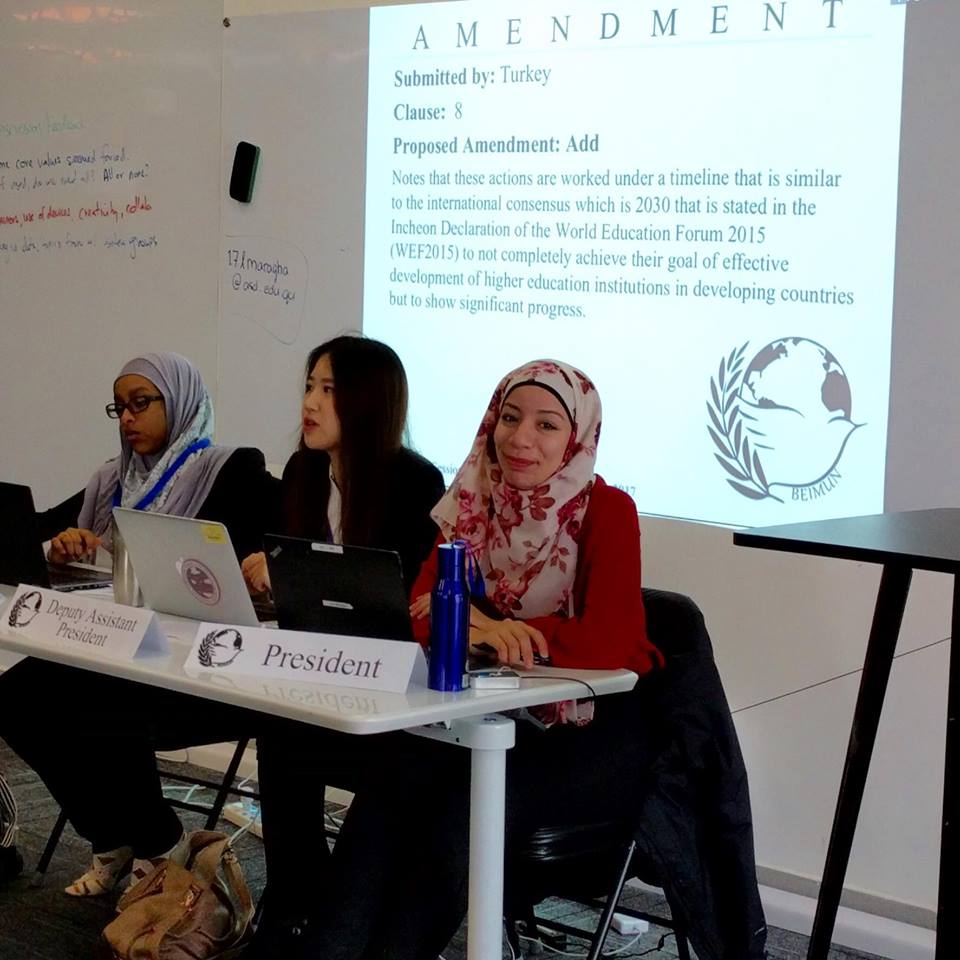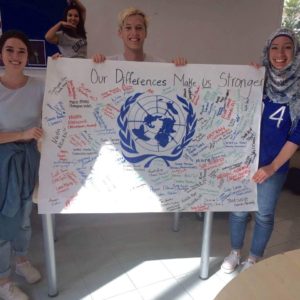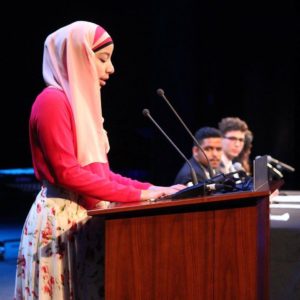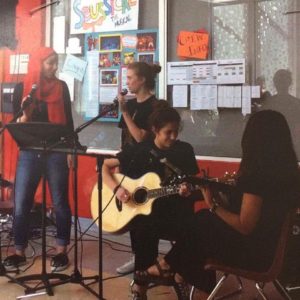By Albert Oliva, MUN Impact Press Writer
_________________________________________________________________________________
Sustainable Development Festival 2018
The Salam Centre for Peace in Israel sent a delegation last month to the first ever Uttarakhand Sustainable Development Festival which was held in a small but sceneric city, Champawat. The Festival was promoted as the beginning of a movement for bringing together the people of the Uttarakhand district with the Government and the civil society for the achievement of Sustainable Development Goals.
Sustainable Development Goals or otherwise known as Global Goals have been established to tackle the most pressing and challenging issues our modernized society is facing. However can these goals be achieved and issues dismissed if only specialized institutions and organizations are fully alarmed of the extent to which they are affecting the society? The answer is fairly simple. No! This is exactly the reason why events such as the Uttarakhand Sustainable Development Festival are organized. The festival was prepared and organized by the Dais Foundation. This foundation has been immensely supporting educational facilities, NGOs, and governmental organizations to cope with the 17 Global Goals and to make a real and vivid IMPACT in the world.
The festival was composed from 8 major events, with the major ones being Uttarakhand Sustainable Development Goals Vision 2030 Launch & Unveiling of Uttarakhand SDGs Wall, Vision 2030 Website Launch, and Uttarakhand Satat Vikas Sankalp – SDG Pledge (#UKforSDGs). The first mentioned event, which in shortcut can be called the Vision 2030, is an online document which is accessible to all participants were information about the actions of stakeholders can be attained during the festival. Throughout the festival these actions were painted on the SDGs wall visible to all students, adults, and staff. The second mentioned event is closely knitted with the first as it is an establishment of social media platform about raising awareness for the vision 2030 goals.
After successfully traveling with students all around the world for prestigious Model United Nations, Salam Kedan, the founder of Salam Centre for Peace, took a totally different initiative and with the delegation of four students travelled all across Asia and later on India to reach this festival which changed their view on life as a whole. “It was such a thrilling experience. It was a totally different concept than MUN conferences but it was as enriching as students met new people and saw that even the poorest group in the society can make an Impact in our world” Salam commented after arriving back to Israel. She and four students arrived back home with a totally new outlook on life and Salam is sure that this experience will Impact their future. “I am glad that all students experienced the generosity of people who are living out from nothing. Moreover they saw that without action, sustainable development will not be dismissed, and with lot of them we have been closely connected while our stay in India: poverty, lack of clean water, hunger.
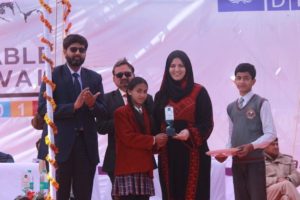
You might wonder, why Salam Centre for Peace received the support to travel to India and for an answer I have interviewed Mr. Akhil Kumar Pandey, an Advisory Board member.
“I have been involved with the centre for quite some time now. My great passion is to teach kids about my culture and learning from them too. For the past few months I have been trying to teach them, that at the end of the day, we are all human beings and have a collective responsibility towards the world. So, the Salam Centre and I share the same vision which is to ensure that there is peace, love and compassion across the world. The centre has become more of a family for me and I wanted to personally take a group from the centre to get to know more about India which I’ll ultimately help them in formulation of new policies.“
Every MUN conference and festival which is connected with Sustainable Development goals leaves in every single participant loads of memories and values. My last question for Akhil was, if he could depict the main value of the festival for the Salam Centre for Peace.
“It may sound like an exaggeration to some point, but when I first came to Salam’s home town in 2017, I was surprised to find out that I was the first Indian they had seen in real life! Their knowledge about Indians was limited solely to the Bollywood movies they have seen! My main aim was to show the delegation what term India, means culturally and socially. Moreover I also wanted to highlight the commonality we have in terms of our language and cultures too. I really hope the delegation was able to learn about India, its diversity, the pluralistic nature of the country and how hospitable we are as a nation.“
After talking to all students, who participated in the festival, I was left out with a feeling of great appreciation and gratitude as I could clearly see that it really significantly changed their outlook on life. “Regarding the best event during the festival, I liked the camping the most, as spending time with people who you barely know, but becoming friends with them, singing and talking together and playing various games was truly amazing”.
After asking the easiest but at the same time hardiest question, What did you like the most in India, Abed Majadly, part of Salam’s delegation, had to take a minute thinking about the answer. “The best thing in India is the behavior of the society. They are simple people, however their generosity was outstanding. They welcomed us in the best and friendliest way possible”.
Even though many people might claim that such events are just for those that are interested in political affairs and are updated on every news that struck the society, the truth is complete opposite. The purpose of this festival was not to unite people, who are already determined to help and are already part of some initiative, but to raise awareness and globally inform people, especially young students.
“Students were able to witness how all of us can come together and do something for others. Even for the adults, it was a great experience as they saw that the youth wants to do something constructive. The festival made them realize that the youth is all for peace and prosperity for all.” Akhil Kumar added
Many students believe that due to their young age they cannot make an IMPACT and cannot influence their society, nevertheless that is absolutely not true. Students and young adults are the ones that can do the most, and I am glad that organization such as Salam Centre for Peace exist, as through them, one can find his own identity and role in our complex world. We need more events all across the world such as the Uttarakhand Sustainable Development Festival, as the society needs information and requires to see that only real action can create real IMPACT.
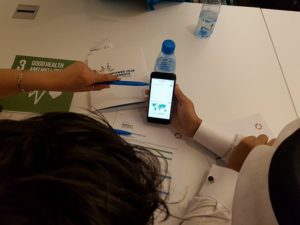
 Using the MUN Impact planning tool, teams of three or four students developed a plan of action tied to their SDG. They had to identify potential obstacles, necessary permissions and authorizations, who their plan would benefit, and how members of their team would be accountable. Through their discussions a number of initial ideas emerged, such as raising awareness around the issue of public sanitation and toilet facilities for migrant populations, to noise pollution affecting our marine environment in Qatar. Participants discovered that even simple, targeted issues had complex webs of interaction and overlapping SDG targets. The conversations were rich and nuanced, and the participants, bringing their own diverse life experiences to the discussions, resulted in animated and spirited discussions.
Using the MUN Impact planning tool, teams of three or four students developed a plan of action tied to their SDG. They had to identify potential obstacles, necessary permissions and authorizations, who their plan would benefit, and how members of their team would be accountable. Through their discussions a number of initial ideas emerged, such as raising awareness around the issue of public sanitation and toilet facilities for migrant populations, to noise pollution affecting our marine environment in Qatar. Participants discovered that even simple, targeted issues had complex webs of interaction and overlapping SDG targets. The conversations were rich and nuanced, and the participants, bringing their own diverse life experiences to the discussions, resulted in animated and spirited discussions.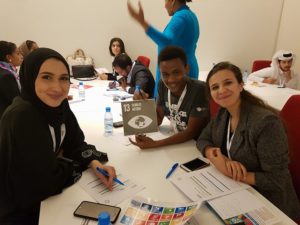
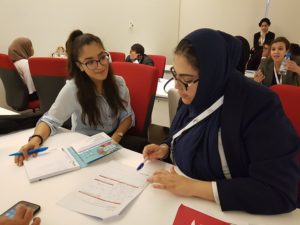


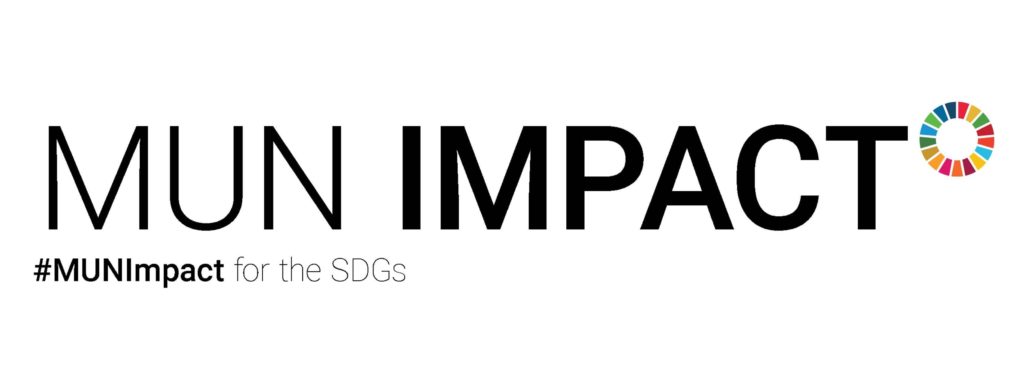
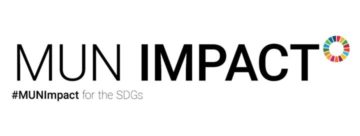
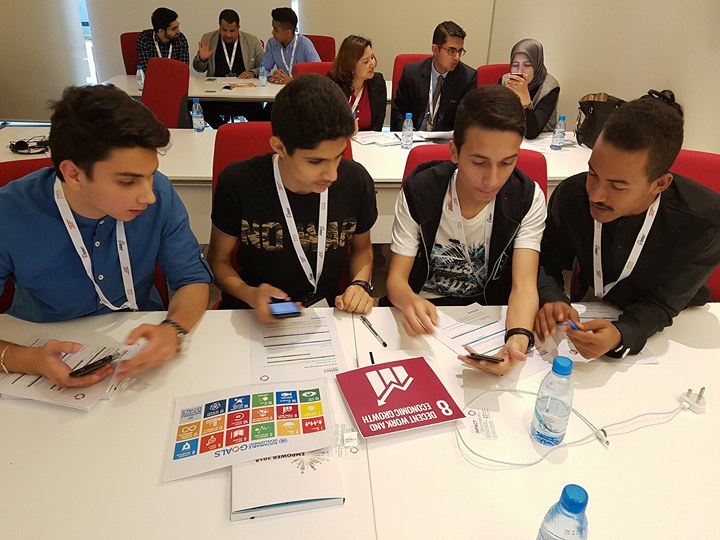
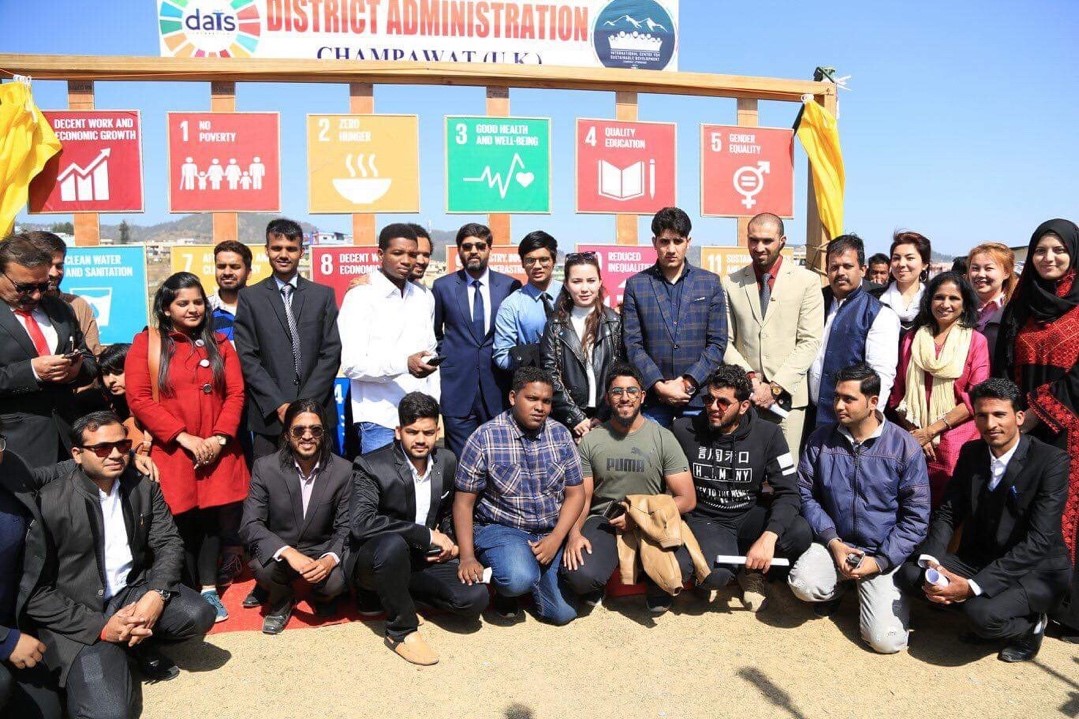

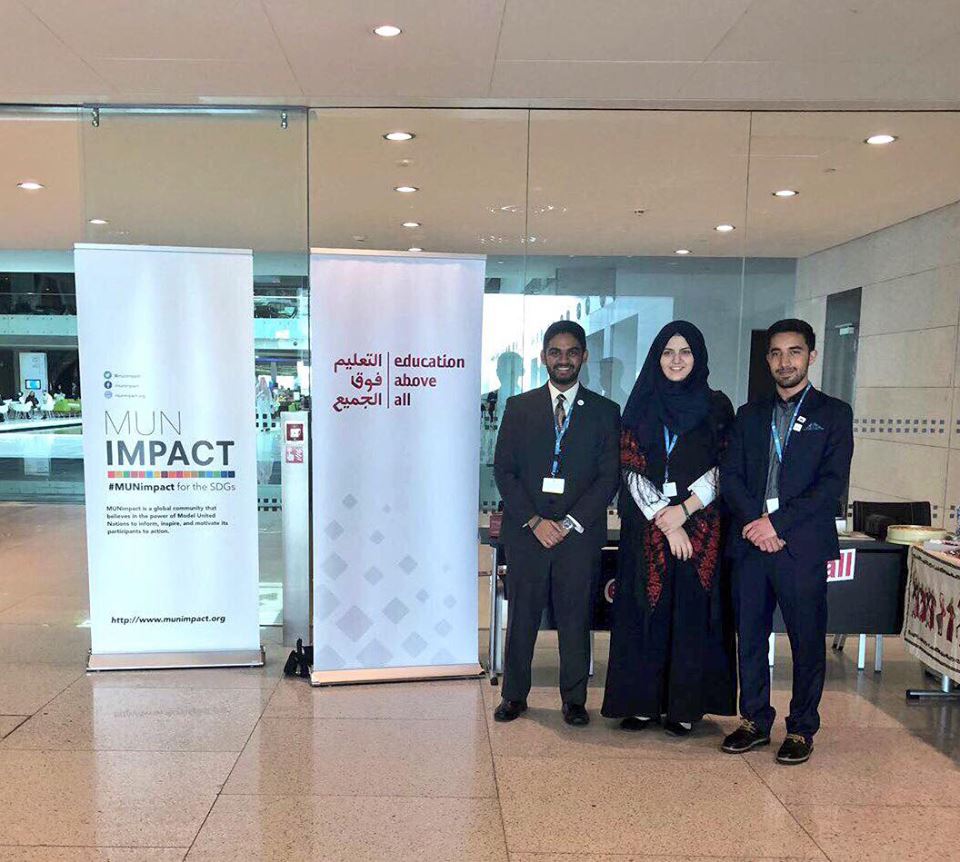
 The 7th Annual THIMUN Qatar conference brought with it a new focus on what MUN should be. Through MUN Impact, we are now looking to make use of students’ increased awareness of the Sustainable Development Goals, international diplomacy, and determination to enact change. The first ever ‘MUN Impact Zone’ was held to bring individuals and organisations closer to the students who are constantly looking for the tools with which they can begin to make a difference in their community.
The 7th Annual THIMUN Qatar conference brought with it a new focus on what MUN should be. Through MUN Impact, we are now looking to make use of students’ increased awareness of the Sustainable Development Goals, international diplomacy, and determination to enact change. The first ever ‘MUN Impact Zone’ was held to bring individuals and organisations closer to the students who are constantly looking for the tools with which they can begin to make a difference in their community.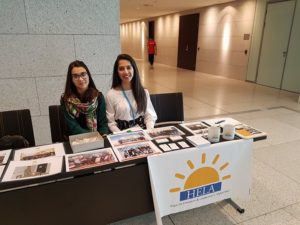 spanning every region of Afghanistan, with monthly MUN conferences held in a university premises and graduating students from a women empowerment course, HELA inspired everyone that came to the MUN Impact Zone.
spanning every region of Afghanistan, with monthly MUN conferences held in a university premises and graduating students from a women empowerment course, HELA inspired everyone that came to the MUN Impact Zone.
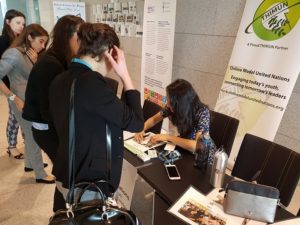
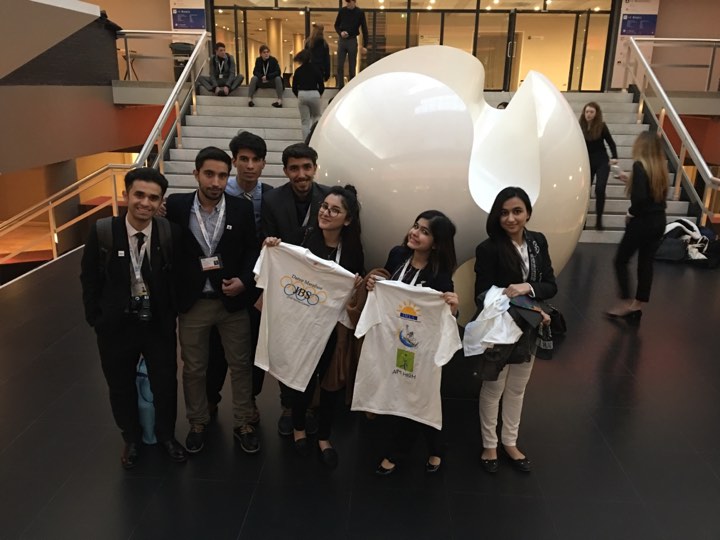
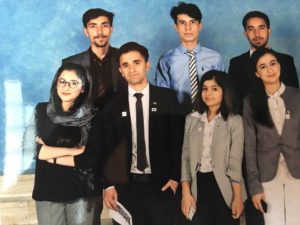 History has been made! Five young Afghans delegates (three girls and two boys) along with their two MUN directors got the chance to take part in one of the largest and most prestigious Model UN conference in the world. There were a lot of obstacles to overcome including securing financial support, visas, and preparing the resolutions and opening speeches, but those challenges were met head on by an eager and enthusiastic delegation from Kabul and in the end the group found tremendous success.
History has been made! Five young Afghans delegates (three girls and two boys) along with their two MUN directors got the chance to take part in one of the largest and most prestigious Model UN conference in the world. There were a lot of obstacles to overcome including securing financial support, visas, and preparing the resolutions and opening speeches, but those challenges were met head on by an eager and enthusiastic delegation from Kabul and in the end the group found tremendous success.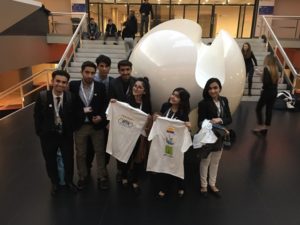 Negina Shinwari commented “Attending THIMUN in The Netherlands was a huge experience in my life because it was my first time traveling to Europe and second time traveling abroad, because I have also traveled to Qatar for THIMUN Qatar 2016.” Among the highlights of the trip Shinwari added, “one of the best part of our journey was going out with our friends from the John Burroughs School (JBS) in the US and Taipei American School (TAS) of Taiwan, because it shows strong support for our young program and a good relationship and globalization. We can say that there are no barriers of language, ethnicity, and religion for any person because we believe that we are all the citizen of the world”. Shinwari was particularly impressed with the workshop that was conducted in collaboration with JBS and TAS the day before the conference started. She said it helped her gain confidence in speaking in front of a global community and really helped her strengthen her resolution and opening speech.
Negina Shinwari commented “Attending THIMUN in The Netherlands was a huge experience in my life because it was my first time traveling to Europe and second time traveling abroad, because I have also traveled to Qatar for THIMUN Qatar 2016.” Among the highlights of the trip Shinwari added, “one of the best part of our journey was going out with our friends from the John Burroughs School (JBS) in the US and Taipei American School (TAS) of Taiwan, because it shows strong support for our young program and a good relationship and globalization. We can say that there are no barriers of language, ethnicity, and religion for any person because we believe that we are all the citizen of the world”. Shinwari was particularly impressed with the workshop that was conducted in collaboration with JBS and TAS the day before the conference started. She said it helped her gain confidence in speaking in front of a global community and really helped her strengthen her resolution and opening speech.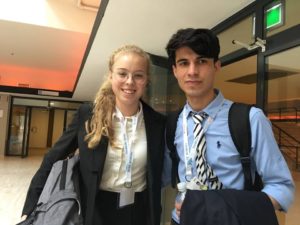
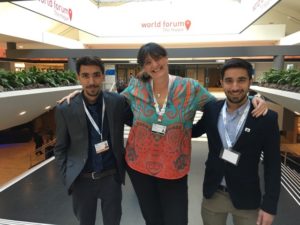
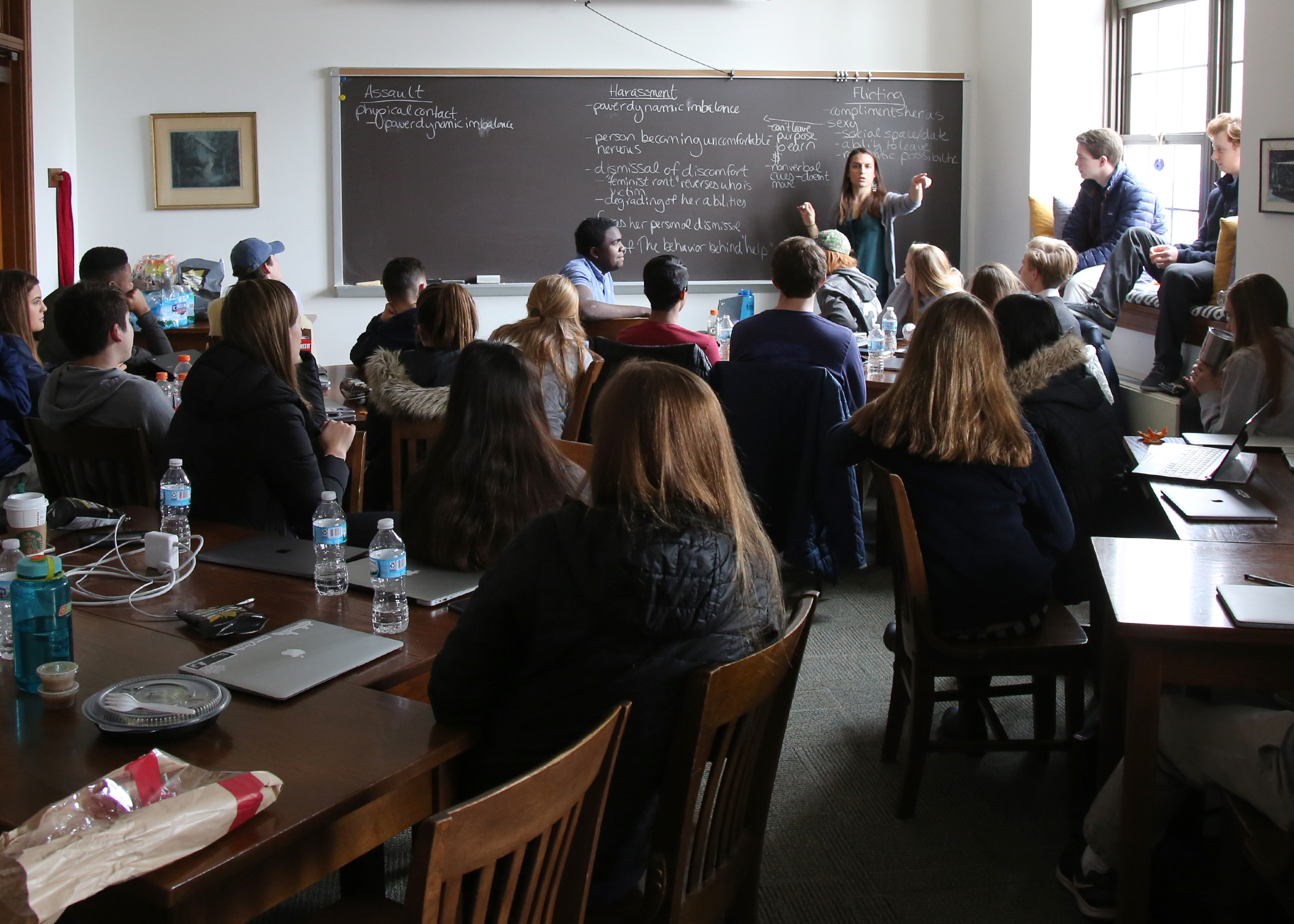
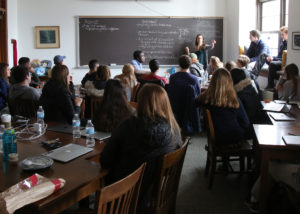 Fortunately, of late there has been a forced exodus of these types of offenders from public offices, largely driven by public opinion—by active protest and dialogue. Just like they see troubling societal trends, the delegates in that room in December are able to see opportunity to effect change. They are part of the solution to injustices like heinous, indignant notes—to injustices on a grander scale. It is important to note that they are not alone. The Secretary General of the THIMUN 50th Anniversary Conference has placed the issue of harassment at the forefront, and will be working with members of the MUNITY press team to confront the problem head-on. This is a community, and its connective fabric is strong. No note will tear them apart.
Fortunately, of late there has been a forced exodus of these types of offenders from public offices, largely driven by public opinion—by active protest and dialogue. Just like they see troubling societal trends, the delegates in that room in December are able to see opportunity to effect change. They are part of the solution to injustices like heinous, indignant notes—to injustices on a grander scale. It is important to note that they are not alone. The Secretary General of the THIMUN 50th Anniversary Conference has placed the issue of harassment at the forefront, and will be working with members of the MUNITY press team to confront the problem head-on. This is a community, and its connective fabric is strong. No note will tear them apart.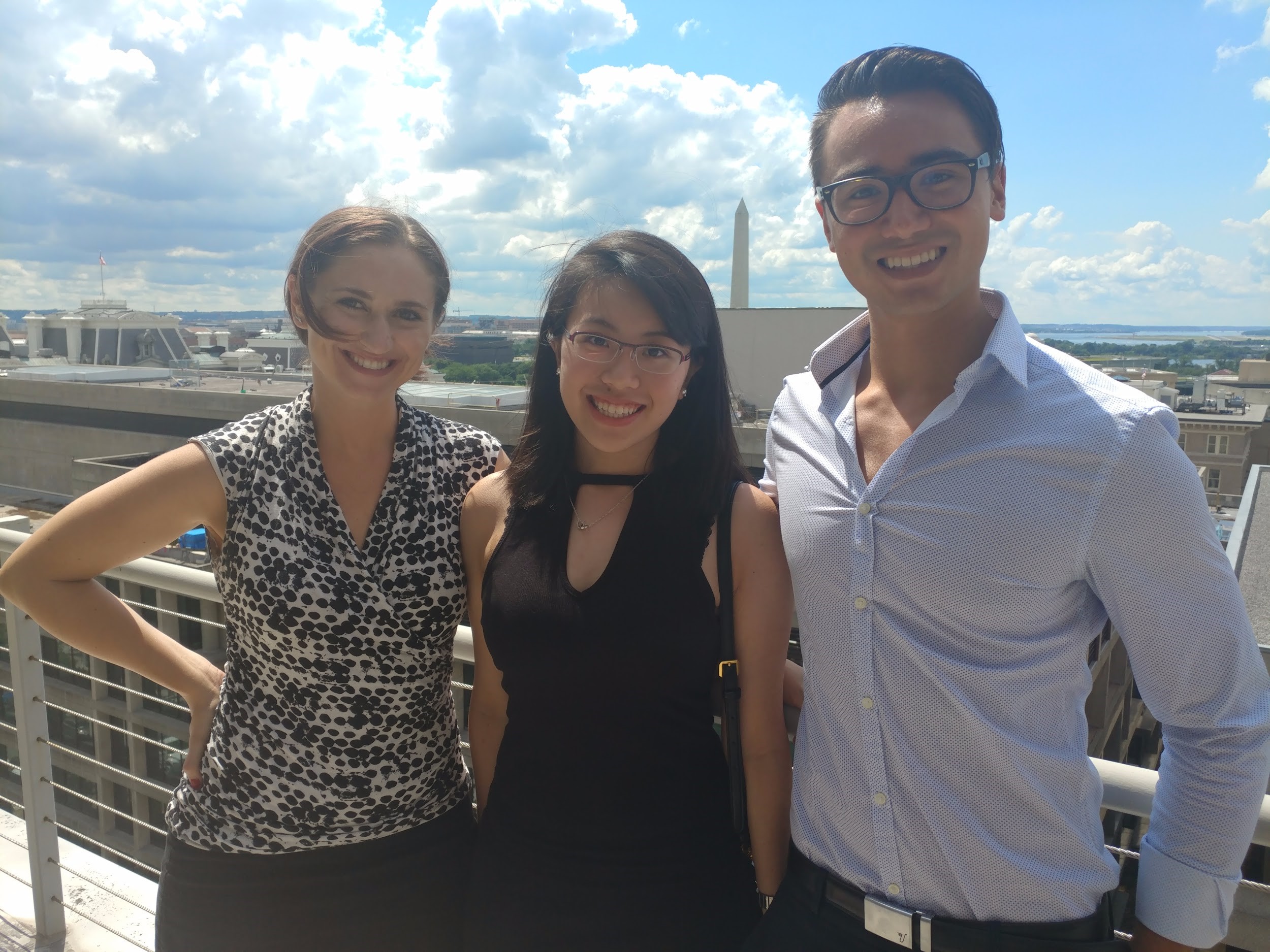
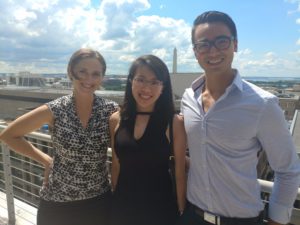
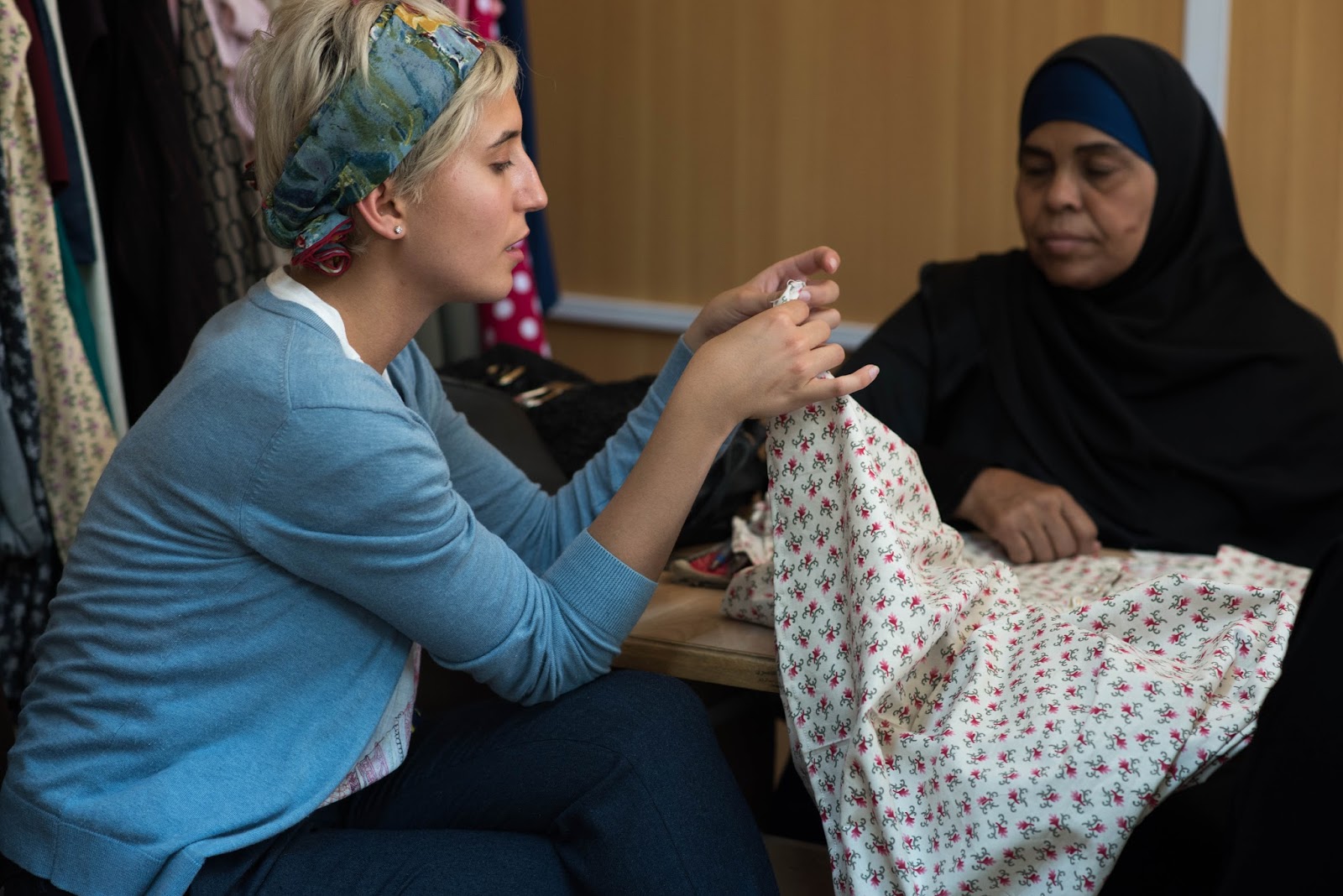
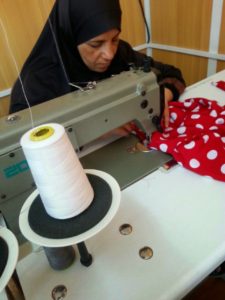
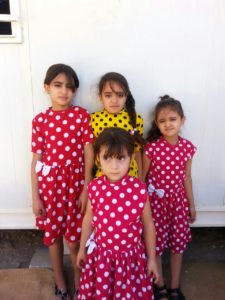 Maharat targeted one of the biggest problems of our region at the time- the refugee crisis. A topic that came up time and time again in MUN, we couldn’t help but feel this was the most pressing issue to us. My sister and I, armed with our MUN knowledge, set off to Jordan to develop a small sewing center in Dhlail, near the Jordanian border with Syria, where Syrian and Palestinian refugee and impoverished Jordanian women would be taught how to sew. The women would be able to graduate from the sewing course with valuable and employable skills that would help them provide an income for their family.
Maharat targeted one of the biggest problems of our region at the time- the refugee crisis. A topic that came up time and time again in MUN, we couldn’t help but feel this was the most pressing issue to us. My sister and I, armed with our MUN knowledge, set off to Jordan to develop a small sewing center in Dhlail, near the Jordanian border with Syria, where Syrian and Palestinian refugee and impoverished Jordanian women would be taught how to sew. The women would be able to graduate from the sewing course with valuable and employable skills that would help them provide an income for their family. 